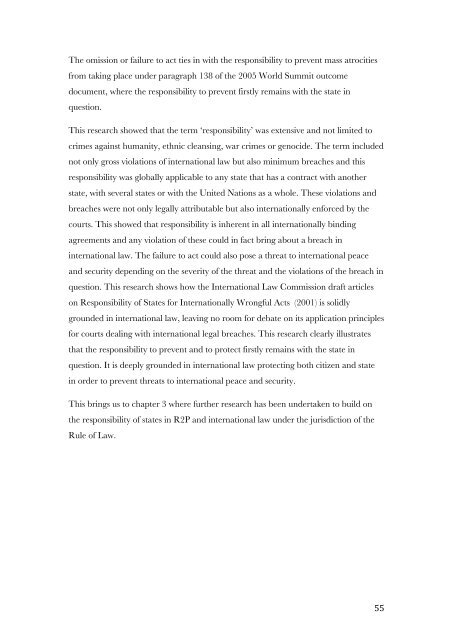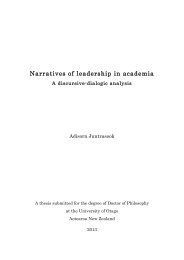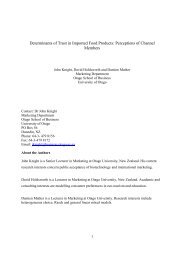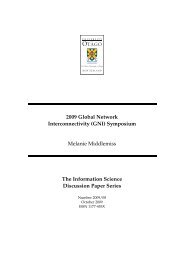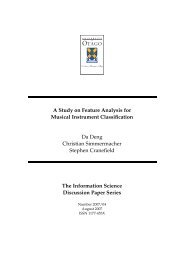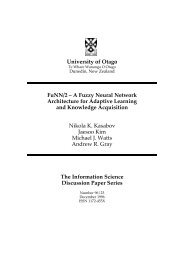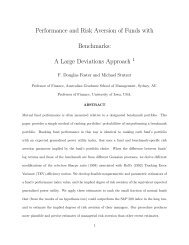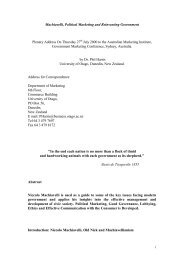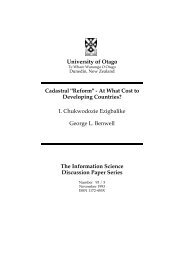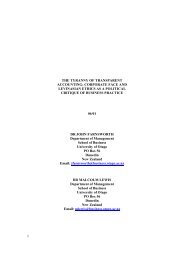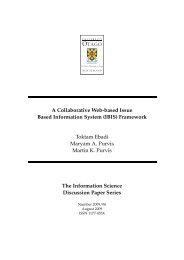Where is R2P grounded in international law? Anne-Marie Judson A ...
Where is R2P grounded in international law? Anne-Marie Judson A ...
Where is R2P grounded in international law? Anne-Marie Judson A ...
Create successful ePaper yourself
Turn your PDF publications into a flip-book with our unique Google optimized e-Paper software.
The om<strong>is</strong>sion or failure to act ties <strong>in</strong> with the responsibility to prevent mass atrocities<br />
from tak<strong>in</strong>g place under paragraph 138 of the 2005 World Summit outcome<br />
document, where the responsibility to prevent firstly rema<strong>in</strong>s with the state <strong>in</strong><br />
question.<br />
Th<strong>is</strong> research showed that the term ‘responsibility’ was extensive and not limited to<br />
crimes aga<strong>in</strong>st humanity, ethnic cleans<strong>in</strong>g, war crimes or genocide. The term <strong>in</strong>cluded<br />
not only gross violations of <strong>in</strong>ternational <strong>law</strong> but also m<strong>in</strong>imum breaches and th<strong>is</strong><br />
responsibility was globally applicable to any state that has a contract with another<br />
state, with several states or with the United Nations as a whole. These violations and<br />
breaches were not only legally attributable but also <strong>in</strong>ternationally enforced by the<br />
courts. Th<strong>is</strong> showed that responsibility <strong>is</strong> <strong>in</strong>herent <strong>in</strong> all <strong>in</strong>ternationally b<strong>in</strong>d<strong>in</strong>g<br />
agreements and any violation of these could <strong>in</strong> fact br<strong>in</strong>g about a breach <strong>in</strong><br />
<strong>in</strong>ternational <strong>law</strong>. The failure to act could also pose a threat to <strong>in</strong>ternational peace<br />
and security depend<strong>in</strong>g on the severity of the threat and the violations of the breach <strong>in</strong><br />
question. Th<strong>is</strong> research shows how the International Law Comm<strong>is</strong>sion draft articles<br />
on Responsibility of States for Internationally Wrongful Acts (2001) <strong>is</strong> solidly<br />
<strong>grounded</strong> <strong>in</strong> <strong>in</strong>ternational <strong>law</strong>, leav<strong>in</strong>g no room for debate on its application pr<strong>in</strong>ciples<br />
for courts deal<strong>in</strong>g with <strong>in</strong>ternational legal breaches. Th<strong>is</strong> research clearly illustrates<br />
that the responsibility to prevent and to protect firstly rema<strong>in</strong>s with the state <strong>in</strong><br />
question. It <strong>is</strong> deeply <strong>grounded</strong> <strong>in</strong> <strong>in</strong>ternational <strong>law</strong> protect<strong>in</strong>g both citizen and state<br />
<strong>in</strong> order to prevent threats to <strong>in</strong>ternational peace and security.<br />
Th<strong>is</strong> br<strong>in</strong>gs us to chapter 3 where further research has been undertaken to build on<br />
the responsibility of states <strong>in</strong> <strong>R2P</strong> and <strong>in</strong>ternational <strong>law</strong> under the jur<strong>is</strong>diction of the<br />
Rule of Law.<br />
<br />
55


